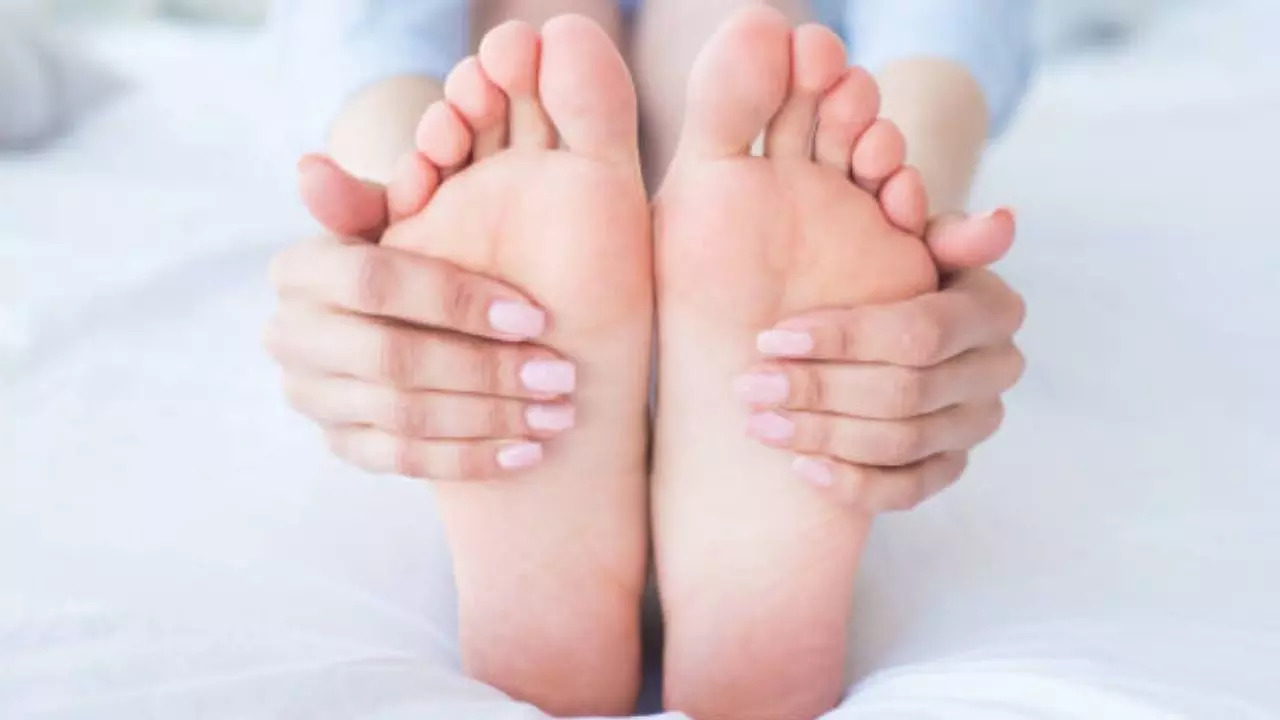-
news
-
Health
What can your feet tell you about your health? expert weight

What can your feet tell you about your health? Expert opinion (Image credit: iStock)
1. Cold Feet: Circulation Problems
Even in warm conditions, if your feet feel cold all the time, it may be a sign of impaired circulation. This may be a sign of more serious heart disorders or peripheral artery disease (PAD). Plaque accumulation causes the arteries in PAD to narrow, restricting blood flow to the extremities. If it is accompanied by discomfort, cramping or numbness, it is important to see a doctor as it can cause significant problems if left untreated.
2. foot ache, gout or arthritis
Long-term pain in the legs, especially in the joints, may be a sign of gout or arthritis. Gout, caused by elevated levels of uric acid in the blood, causes sudden, excruciating pain that often begins in the big toe. Arthritis, on the other hand, can cause stiffness, swelling, and discomfort in the joints of the foot. Early treatment of diseases like gout and arthritis can reduce symptoms and increase quality of life.
3. Swelling in legs: accumulation of fluid
Swollen feet often occur during pregnancy, during long flights, and after standing for long periods of time. On the other hand, chronic edema, or swelling, may indicate more significant health problems such as liver, kidney or heart failure. If swelling is accompanied by fatigue or shortness of breath, prompt medical intervention may be necessary.
4. Diabetes Related Numbness or Tingling:
Diabetes, especially diabetic neuropathy, may be indicated by tingling or numbness in the feet. Prolonged elevated blood sugar levels can damage the nerves of your limbs, which is why this syndrome occurs. If left untreated, it can result in infection, ulcers, or even amputation. To avoid complications, regular foot checks and blood sugar management are important for diabetic patients.
6. Dry, damaged heels: thyroid problems
Although cracked and severely dry heels can be a sign of hypothyroidism, a condition where the thyroid gland does not produce enough hormones, dry skin on the feet is common, especially in the winter. Hypothyroidism also causes weight gain, fatigue, and sensitivity to cold. It’s worth talking to a doctor if you experience persistent dry skin in addition to other symptoms.
7. Not feeling well foot wounds:Diabetes or inadequate circulation
Unhealed wounds or sores on the feet may be a sign of vascular disorders or diabetes. It is common for wounds to heal slowly due to poor blood flow and nerve damage in people with diabetes. This is particularly risky because neglected wounds can become infected and worsen the outcome.
9. Lack of water or inadequate nutrients: leg cramps
Leg cramps that come on suddenly and are painful may be a sign of dehydration or a deficiency of important minerals such as calcium, magnesium or potassium. Deficiency of these minerals can lead to cramps as they are necessary for both contraction and relaxation of muscles. Leg cramps can be avoided by eating a balanced diet and staying hydrated.


